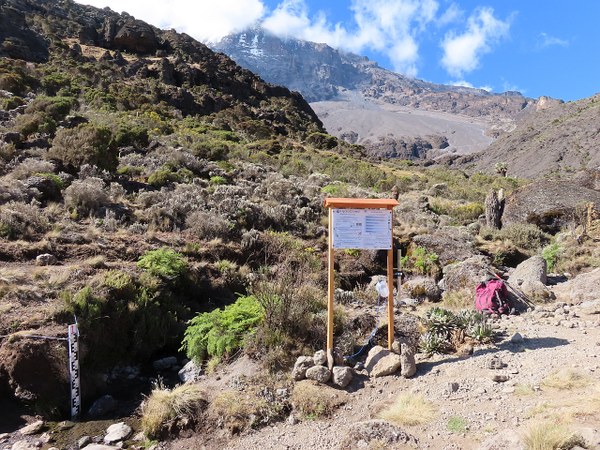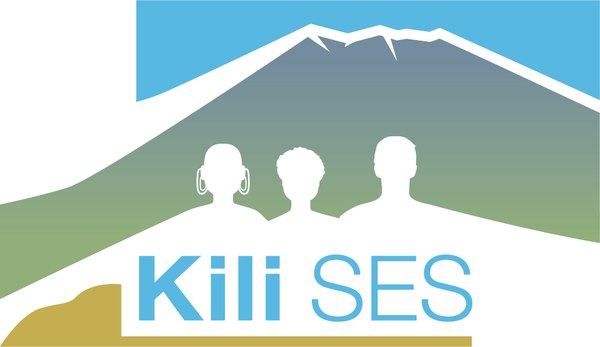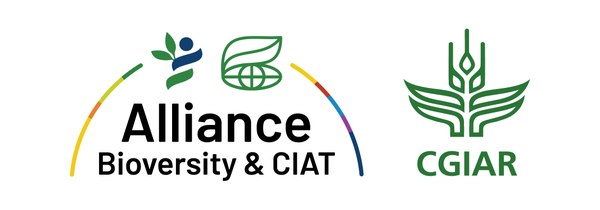HydroCrowd - Citizen Science in Hydrology
|
Climate change has a worldwide impact on water availability and the occurrence of extreme weather events like floods and droughts. Reliable weather and water data are urgently needed to inform sustainable water management and develop strategies for climate change adaptation. The involvement of citizens in data collection research, also called ‘citizen science’, is seen as a promising way to increase data availability at relatively low costs, especially in countries where limited resources for data collection are available. By testing different approaches to engage citizens in data collection in Tanzania, Honduras and Ecuador, HydroCrowd aims to strengthen the acceptance of citizen science as a valid data collection approach. |
|
What do we measure?
There are two types of 'HydroCrowd stations'. At a weather station, citizen scientists measure rainfall using a manual rain gauge. Rainfall measurements are necessary to know how much water there is. In mountainous regions, rainfall is very variable. This is why it is good to have rain gauges in as many different locations as possible. Air temperature and relative humidity are important to understand how much water goes back to the atmosphere through evaporation and water use by plants. This water will not be available for direct use, but can eventually fall somewhere else as rainfall.
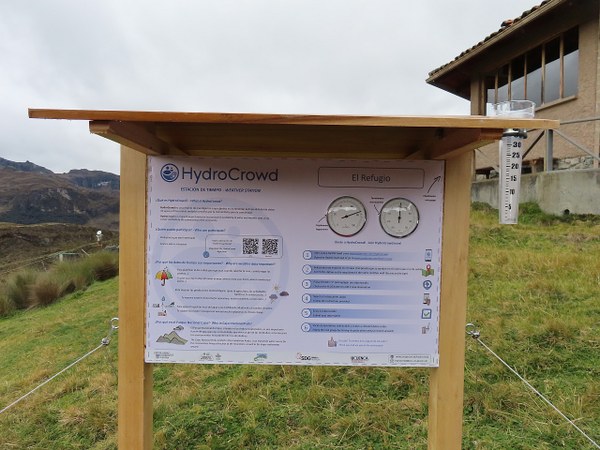
|
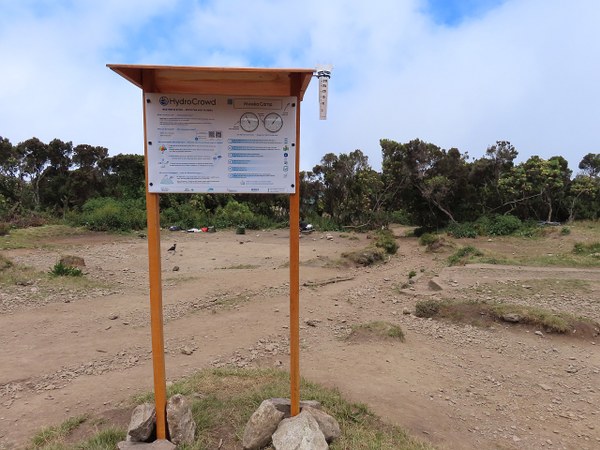 |
Where rivers and streams are accessible (for example, at a bridge), there are water stations. Water from the river is used for the supply of drinking water, agriculture, energy production (hydropower) and industry. Knowing how much water there is at different times of the year through water level measurements is therefore crucial for equal allocation to different water users and sustainable water use and management. Turbidity or clarity of water is an easy to measure indicator for soil erosion and water quality. The lower the turbidity, the better the water.
|
|
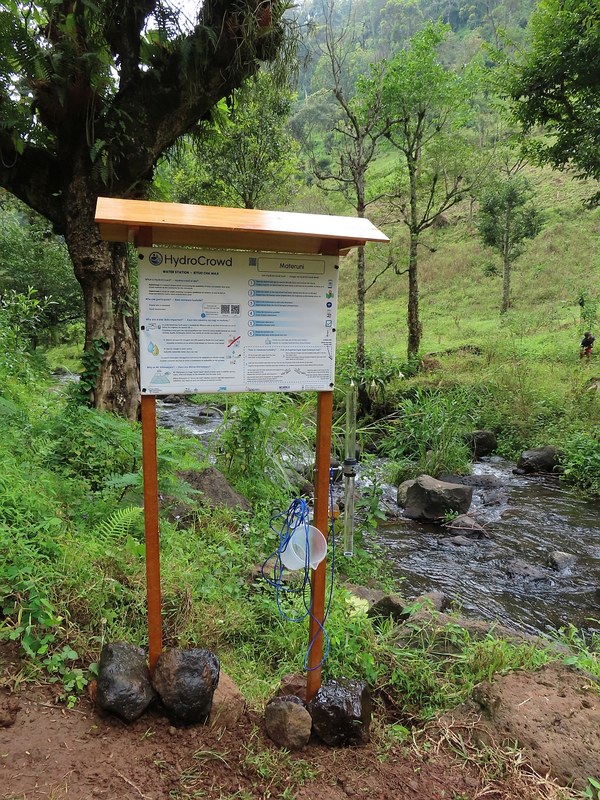 |
|---|
How does it work?
With the HydroCrowd app, you can immediately check the weather and water conditions at the different stations in the project regions based on photos and measurements submitted by other citizen scientists. You can also check out the HydroCrowd stations and submit measurements through the web application https://www.spotteron.com/hydrocrowd/.
When passing a HydroCrowd station, submit data using your smartphone. As not all the stations have a good mobile network coverage, it is useful to download the app, the offline map of the area and the stations you plan to visit before going there. Then you do not need mobile network to take the measurements. Once you are back online, you can submit all your saved measurements in one go. All instructions can be found here in English, Spanish and Kiswahili.
Your measurements will be immediately visible in the HydroCrowd app and on the website.
The HydroCrowd team will use your data to develop and test models to improve weather forecasting and support sustainable water management.
Your contribution to HydroCrowd
There are several ways in which you can support HydroCrowd:
- Become a citizen scientist!
Are you living in one of the project regions or going there yourself? Then download the HydroCrowd app to your smartphone and submit data whenever you pass by a station. For an overview of the stations, check out the map in the web application. Every measurement counts!
- Advertise and raise awareness
Do you organise tours in one of the project regions? For example, exciting hikes in the Cajas National Park in Ecuador or in Celaque National Park in Honduras, or climbing tours of Mount Kilimanjaro in Tanzania? Make the HydroCrowd stations part of the initerary! Inform your clients in advance about the project and let them download the app (for example, to check the current weather in the places where they will go). Encourage them to make their own contribution to support everyone on the mountain and to sustainable water management in the region by sumbitting measurements at every station they pass along the route. We can provide you with information you can share with your clients.
- Be a HydroCrowd Ambassador
Are you guiding tourists in one of our project regions? Pass by any of the HydroCrowd stations during your visit. Show the station to your group, explain about the importance of collecting weather and water information and encourage them to participate. And of course, feel free to make your own contribution!
Please get in touch with us if you would like to receive more information about the project: hydrocrowd@zeu.uni-giessen.de
|
|
|
| Dr. Suzanne Jacobs | Jazmin Campos Zeballos | Fabia Codalli |
| Dr. Björn Weeser | Fabian Mitze | Jefferson Valencia Gómez |
| Prof. Dr. Lutz Breuer | ||
|
Senckenberg Biodiversity and The role of nature for human well-being in |
Alliance of Bioversity International and the International Center for Tropical Agriculture (CIAT) Agua de Honduras |
|
|||
|
|
|
 |
|||
| Prof. Dr. Katrin Böhning-Gaese | Dr. Jürgen Baumann | Prof. Dr. Helmut Breitmeier | |||
Join us!
Project countries
Meet the team
Stations
Check out all our stations in the three project countries here! Did you take a picture of a station and would you like to upload your data? Click on the upload link for the station.


